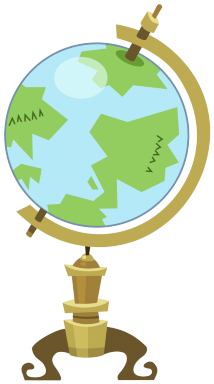
People’s Empire of the Cloven (1)
People’s Empire of the Cloven (1)
Territory: Roedinia and other territories
Leadership: People’s Empress/People’s Director/People’s Speaker
Structure: Revolutionary Empire
Power: Nascent Great Power
Ethnicity: Deerkind (Erobreseg), Ponykind, Centaurkind, Diamond Dog, etc.
Language: Roedinian (Multiple), local variants of Equish, Centaurese, Dimantish, etc.
Ideology: Clovenism
Religion: State Apatheism / Multi-Religious (Formerly Roedinian Bogolenyan Church)
Anthem/Motto: "Rise, the People's Empire!"/"Break the Chains!"
"One People. One Banner. One Dream."
Cast down in the fires of upheaval, the old regimes of Roedinia had been swept aside in civil wars and uprisings that had engulfed the land. Decadent aristocracies and stagnant monarchies which had existed for centuries had been destroyed, replaced in their stead one new and revolutionary ‘Empire of the People’ that now encompassed nearly all their former domains.
This People’s Empire of the Cloven had declared itself the protector and liberator of the downtrodden, disenfranchised and the dispossessed, following the ideals of its founders. The ‘People’s Empress’ Zora Kalakov and her fellow leaders had promised to bring peace, progress and prosperity to not just the lands of Roedinia and the Herds of the Deer, but also eventually to the entire world and all other thinking creatures, seeing it as a necessity and their duty to bring freedom to all lands, so that a better future can be created for all - even if it means eventually doing so by force to all of Equus, pledging the destruction of all tyrannies, reactionaries and imperialists who would fight hold onto their power over their oppressed peoples, and would surely not rest until the People’s Empire and everything it symbolizes is destroyed for the threat it poised to them.
But the People’s Empress and the leadership of the People’s Empire fear not those who would oppose them and the monumental challenges of the utopia they are determined to build, drawing strength from their convictions and their dream of a better world - one which they will pursue with optimism and zeal, no matter what needs to be done and what the costs may be.
History:
“The scions of the forests are lost – one to deep woods, one to the sea, one to the ambitions of their hearts. What once splintered cannot be mended, and the gods themselves weep in the scattering of their children.”
--- Holy texts of the Deer found in the Equestrian Classical Era concerning the First and Second Splintering.
Following the Second Splintering that divided Deerkind once again, the Erobreseg Deer Herds rejected the old druidic ways of those who would become the Alvslog Deer Herds, departing to embrace the ways of other races and peoples and forming their own feudal civilizations and cultures in emulation of those who were so successfully out-competing them. Seeking to reverse the long decline of their former forest civilizations, they became empire-builders, lords and sovereigns, ruling over vast realms from palaces and castles and ever seeking to conquer and expand their power.
Like in many other places, in the harsh lands of Roedinia, far from Cervidia, many Erobreseg Deer kingdoms emerged, sharing a similar culture yet divided between various monarchies, aristocracies and other rulers - In their language, realms ruled by a single Czar, a Knyaz clique or a generalized Vozhd respectively. For many centuries, these sovereigns, nobles and petty despots had dominated the land, their realms engaging each other in trade, intrigues and wars. No single power ever coming close to dominating the vast lands permanently, barring a few exceptions like loose federations of Erobreseg Herds, renowned conquerors like the Golden Czar, whose empire once briefly controlled the vast expanse through conquest and diplomacy; and long before the Erobreseg Deer Herds even settled there, fabled precursor civilizations like the legendary ‘Empire of Ushr’ from the early Second Age (Whose actual identity and nature would not be fully uncovered until the return of Queen Dazzleglow) is said to have once prospered there, the few tattered remnants and distorted apocrypha left behind as their legacy having greatly influenced the development of the Erobreseg realms of Roedinia.
“More so than other nations, the history of Roedinia is written in the blood, sweat and tears of its people.”
--- Idealen Zhivot, Roedinian Writer and Poet
By the current century, the fragmented nations of Roedinia had spread across the entirety of Roedinia, conquering and absorbing many other species and tribes into their own, while facing off many attempts at conquest such as by other kingdoms and empires over the ages from the likes of Ponies, Centaurs and Griffons. Yet the land was still divided among various Czardoms, Knyazdoms and Vozhdoms, older rulers and realms replaced by newer rulers and realms in a cycle that had continued for centuries, but shifting little overall. It was all soon to change.
Despite the apparent absolute power of the sovereigns which dominated Roedinia, it was becoming apparent that the realms were being afflicted with stagnation and decay. Inbreeding among the ruling Czars’, Knyazs’ and Vozhds’ families were reducing the general competence and longevity of the ruling elite, as well as introducing capriciousness and psychotic issues to even the seemingly healthy ones, leading to endless political strife with weak and unpredictable rulership, afflicted with sudden deaths and legitimacy issues that led to endless dynastic intrigues filled with scheming, assassinations and usurpations.
The regimes they headed had also become increasing corrupt and decadent; the gentries who holds the lion’s share of political power by the absolute sovereigns’ delegation had forgotten their noble obligations, concerned only with advancing or preserving their status, merely seeing office as a means to that end and a way to profit from embezzlement and bribery while at it. And with their power to appoint judges and police chiefs, their subjects can do little to bring justice against them. Regarding their subjects, their corrupt rule had led to the impoverishment of their people with heavy taxation and economic mismanagement; while apathetic nobles partied and dined heartily in lavish mansions, the poor peasants and workers dwelled in squalor, living under constant threat of starvation, poor health, terrible working conditions and unbearable living spaces with little hope for remedy.
“We belong to our masters… But this is our land.”
--- Common Peasant Saying in the lands of Roedinia prior to the rise of the Cloven Empire and the total abolishment of serfdom.
Over the centuries, Roedinians had become increasingly resentful of their rulers. Calls for reform and change resonated across society, clamouring for liberalisation and modernisation that would improve the lives of the people, but nearly all of it fell on deaf ears. The conservative autocrats clung onto their power tightly and firmly, fearing any changes would result in the loss of their power; indeed, so reactionary were these rulers, serfdom remained in place in many Roedinian realms where most of the world had long-abolished them, which some had taken to be clear evidence of their obsession with the status quo. Even if it left their nations poor and backwards compared to the rest of the world, they would rather die than take any chances of losing their authority and status - a mistake which would indeed proof fatal to many of them.
Any manner of dissent were brutally suppressed overtly through military might, or subtly through secret police that spied on, arrest and murder their own people. Distractions were given to the masses by redirecting their anger towards other Roedinian realms in wars, persecution of racial, ethnic, cultural and religious minorities in pogroms, or through the Roedinian Bogolenyan Church, whose priests, in cahoots with the ruling elites, constantly placated the masses and preached obedience to the Bogolenya Deer Pantheon through obedience to the Czars, Knyazes or Vozhds - much to the consternation of the actual deities of the Bogolenya Pantheon themselves.
But no amount of oppression and exploitation can last forever; sooner or later, something will break. Driven underground, Roedinian Secret Societies become the rallying point of many dissidents and revolutionaries determined to oppose - and eventually, overthrow - these corrupt regimes, their members from all parts of Roedinian society; from desperate peasants and workers, frustrated professionals and intellectuals, disgruntled soldiers and generals, persecuted minorities and religious believers, to even disillusioned nobles and royalties.
Ironically, it was one member of one of those secret societies from the last group that finally set the dominoes toppling off towards change: she was Zora Kalakov, third to the throne of the Czardom of Elennia (Equestrian translation), one of the most powerful Roedinian realms. Once a sheltered princess, her initial naive idealism was transformed into a fiery conviction as she saw the suffering her family and the ruling elites had wrought upon their subjects, and become driven by a determination to end it and bring peace, progress and prosperity to Elennia - a dream that she would eventually extended to the rest of Roedinia and the world. Together in secret with a group of like-minded individuals - a clique of notable intellectual, aristocratic, military and proletariat ideologues who would all become important leaders of the new order they would build - they would plant the seeds of the People’s Empire.
Their opportunity would come when, after a decade of planning and gathering support across Elennia and wider Roedinia, the situation facing the Roedinian people became critical. A mysterious crop blight and unusually harsh winters led to shortages and famine; the already mismanaged and backward economies of the realms either did or teetered on the brink of collapse; wars erupted across Roedinia as the many despots, monarchies and aristocracies fought one another due to issues triggered by those developments, which ironically only worsened the problems as they bogged down into stalemates and military disasters due to incompetent leadership by the nobles and sovereigns. Roedinians all across the land became increasingly incensed by the hardships they endure, leading to increasing upheaval as the people demanded their voices be heard, despite all attempts by authorities to suppress them.
In an attempt to restore order without causing further turmoil, the Czardom of Elenna's government invited a member of the Bogolenya Deer Pantheon, Lesnamatya, the Mother Deer, for a public speech, hoping to use religious influence from one of the divines their people worshipped to placate the masses and restore legitimacy of the regime.
But they did not receive what they expected. Lesnamatya, had been touring the kingdoms of the Erobreseg, checking on the pantheon’s mortal followers. A kind and benevolent nature elemental goddess, when she travelled through Roedinia, helping the sick, the poor and needy along the way with a retinue of followers and pilgrims, she found herself shocked and disgusted by how the repressive regimes had treated their own people, as well as the senseless loss of life that resulted directly and indirectly from the wars that erupted throughout the lands due to the famines. Even more outrageous still was the government’s attempt to use her to control their own people. However, rather than going along with their plan, or outright refusing to do so, she decided to take matters in her own cloven hooves.
As the populace’ suffering and frustrations reaches a breaking point, on a cold Monday morning, when thousands had gathered to hear their goddess speak in Czars’ Square in the capital city of Korolovgrad, with order being kept by troops from the capital garrison, rather than speaking in support of the Czardom, she openly criticized and condemned it and the other Roedinian regimes. In a grand speech that was relayed across the world by reporters and correspondents, she laid out every fault and problem she had found within the kingdoms, calling the rulers out for their misrule and declare that she, along with the rest of the Bogolenya divines, found them wanting. She urged them to cease their destructive conflicts and and address the grievances of the people, imploring them to give them the governance they deserved, ending in a hopeful note that it may not be too late to return to the right course.
It was, however, too late. Historians had now pointed to this speech, and that day, as the match which would light the flaming conflagration leading to the regimes’ downfall. While Mother Deer may had been intended for her words as a wake-up call to the Roedinian royals and nobles, her Condemnation Speech had completely shattered any legitimacy they have left. The divine right of the Vozhds, Knyazs and Czars to rule was thrown down by one of the very divines that the nation worshipped, and with it went the prestige and mystique of them being the unquestionable, divinely-anointed rulers of Roedina. In the days to come, even many who had been the regimes' most stringent supporters turned on their rulers, their faith proving stronger than their own loyalty to the autocrats.
But even all this paled in comparison to what happened next. The crowd, inspired and incensed by Mother Deers’ words, became agitated, and began marching towards the Czar's palace. The garrison troops who were maintaining order found themselves pressed, and the crowds were ordered to dispersed. Even with Mother Deer imploring them to calm down, the crowd refused, pushing against the lines of armed soldiers.
Panicked, the commander of the garrison troops gave the order to open fire. Shooting into the crowds, hundreds were slain immediately, and hundreds more were wounded as the panicking deer stampeded away from the volleying Repeater Crossbows and Blastfire Cannons. Among the crowd were Does and Fawns, many of whom had been on the front of the crowd on the assumption that the troops wouldn’t open fire on them.
Shocked by the carnage, Mother Deer leapt down from the podium and rushed to heal the wounded and save the dying with her healing powers, followed by her retinue of followers – by her efforts alone, hundreds were saved. Some soldiers, horrified by what they had done, dropped their weapons and broke ranks to help. The rest of the garrison, seeing what had been wrought, were ordered to withdraw, for whatever good that action would do now.
"YOU TURNED US INTO BLOODSTAINED KILLERS!"
--- (Reputed) Repudiation of an Elennan Soldier to his commanding officer before rushing to help those he and his comrades had shot.
The cold-blooded murder of innocent females and children who had only been listening to one of their noble deities speaking shocked the realm. Public outrage exploded across Elenna and other lands, and demonstrations and riots swept through almost every major city, while peasant revolts erupted all over the countryside. Attempts were made to contain and scatter the opposition by the security forces, but the authorities were met with stubborn demonstrators and renewed marches on every front, for all of Roedinian society had become united in their opposition to the regimes of Roedinia after what became known as 'Red Monday'.
If anything could had been done to save the dynasties and their power, it would take extraordinary measures or decrees, effectively giving the changes that the people wanted, and most experts agreed that it would had been the only option the Czar of Elenna and his rivals and peers has left. But ultimately, nothing was done.
“So they talk, pray, march, protest - but what do they receive? Soldiers, dungeons, torture, sentries, exile - and now after today, they’ll receive cannonfire! Is this the gods’ will? Are these their methods? Make war upon your own people - how long do you think they’re just going to stand there and let you kill them? You ask me who’s responsible - You ask?!”
--- Graf Byalagora, Vizier and relative of the Czar of Elennia, to his ruling cousin shortly after Red Monday.
Mother Deer’s Condemnation Speech and the massacre would trigger outrage all over Roedinia against their corrupt and tyrannical rulers. In Elennia, this triggered something more: enraged by the mass murders of innocent subjects, Zora and her compatriots finally decided it was time to act, with Zora in particular condemning her whole family as unworthy of continued reign - or continued life, for that matter. With disgruntled troops loyal to Zora and her fellow compatriots’ cause, Zora launched a coup d'etat leading to the overthrow of the old Korolov Czar - her own father - most of the gentry and the rise of Zora Korolov as the new leader of Elenni to the popular acclaim of her new subjects and troops. A bloody civil war ensured that would pit Zora against her remaining siblings and relatives with nobles and forces loyal them, but with the opposing reactionary forces’ disunity, the control of the heartland of Roedinia, and the Bogolenya Deer Pantheon’s refusal to aid the opposition nor hinder the new leaders, the ‘Cloven’ forces prevailed and seized control of the entire country.
Events in Elennia would be mirrored by - if not outright inspired - similar events and actions across Roedinia, transforming protests and riots into uprisings and coups that would see other Czardoms, Knyazdoms and Vozhdoms across Roedinia overthrown or plunged into civil wars in turn. Having won their civil war and stabilized their new government, the new ‘Cloven’ government sent aid, advice and even armed forces to support the anti-regime forces in those countries - and invade those realms whose rulers still held onto power. The outside world watched with horror and apprehension as, Erobreseg Herds or not, many other rulers’ allies and associates in Roedinia - some friends and even family - are overthrown, punished and massacred by their vengeful subjects for all the wrongs and injustice they had inflicted upon them. Even outside foreign help did little to ultimately forestall the tide that would eventually engulf all of Roedinia.
Tired of their centuries long divisions and realizing only unity in purpose and ideals - many of which they share - can ensure their survival in a world seemingly hostile to their dreams of a better future, the new provisional governments gathered and agreed to unite their formerly fragmented nations under one banner. No longer would they be divided by petty divisions that their old oppressors had propagated to hold onto power; together, the Deers of Roedinia, and even the non-Deer who had fought alongside of them, will be united under one banner, one ideal and one people - the Cloven people. And for her and Elennia’s leading role in making this possible, Zora would be chosen and crowned as the most esteemed leader of their new nation. So it was, on the day of her coronation, Zora Kalakov, now the ‘People’s Empress’, would proclaim the founding of the People’s Empire of the Cloven.
In the decade since their founding, the People’s Empire had consolidated their power over Roedinia, crushing all remnants of the old order and driving those who survived from their land in their ideological zeal. Yet even in their foreign refuges, those cast down by the Clovenists can find no rest - for now the People’s Empire sets its eyes upon the rest of the world, determined to repeat what they have done in Roedinia to the rest of the world - not only to ensure their own survival from the oppressors, enslavers and tyrants, in their eyes, but also build what they believe to be a better future for all. Even now, as the world worried and wonder where the Cloven’s path would lead, their actions are making waves across Equus: their zealous pursuit of progress had been blamed for the rise of Dracozilla and other monsters and catastrophes, even as rebels they inspired or supported unfurled their banners from atop toppled regimes’ strongholds, while their Imperial Liberation Legions marched to bring Clovenism to lands beyond Roedinia, most recently with their notable and controversial intervention in the Storm King Crisis. Whether seen as heroes or monsters in the making, all knew one thing:
“From this day forward, let no warmongering conqueror wage war without trembling in fear of our intervention. Let no tyrant sleep easy at night knowing one day we will raise their people against them. Let no power mortal or immortal conspire against this new dawn. Let none who would stand against us bar our way, for we will prevail - No matter the costs!”
--- People’s Empress Zora Karalov, in her coronation and Empire-founding speech.
Government:
“None of it makes sense, but somehow they made it work. The consensus verdict is that it is doomed to fail… but then again, we could say the same of every other political institution throughout history, all of which did ultimately fall.”
--- Close Scrutiny, political analyst, commentator and historian from Terra Equus
The Clovenist political organization may seem bizarre from a superficial look; a strange patchwork system that mixes the best - and potentially the worst - ingredients of anarchism, republicanism and monarchism into a cauldron of hybrid governance, heated by the fires of ideological zeal and adjusted with the spices of necessities and compromises. If such analogy applies, then it appears, to quote political analyst Close Scrutiny, “the chefs had yet to finish cooking”, and the final political form has yet to be set.
The best way to describe the Clovenist political structure is to see it as a triumvirate of three separate government organs of state of equal power, working together to run a single empire: the Council of People’s Regents, head by the People’s Empress/Emperor; the Commission of People’s Service, headed by the People’s Secretary; and last but not least, the Coalition of People’s Collectives, headed by the People’s Consul. Indeed, the Roedinians themselves referred to it as the Troika, their word for a triumvirate (Or more humorously the Trojak, the threesome dance).
Each ‘Cleave’ is different in terms of political structure from the others, and different in terms of governmental function: the Coalition of People’s Collectives are responsible for management of the socio-economic aspects of the Cloven Empire, consisting of the many thousands of peasant communes, hundreds of worker unions, and dozens of city councils, all allied under a single bloc to advance their mutual interests, but otherwise retained independent self-governance in regard to how they run their farms, factories and cities - in effect, they resemble what Second Age ideological sages had designated as ‘Anarchist’ or ‘Anarcho-Syndicalist’ collectives, and what contemporary Fourth Age political experts would classify as Synergists.
Representing them is the People’s Consul, currently held by Wheat Grain, a former Roedinian Pony farmer, with his deputy Magnit Kuche, a former female Diamond Dog miner, both of whom close friends who had become some of the most prominent and well-respected proletariat leaders despite their non-Deer heritages.
The Commission of People’s Service are composed of newly-appointed or reinstated professionals and officials , consisting of a collection of lesser Committees and Plenary organisations established by the People’s Empire. Despite their checkered reputation even within the Cloven Empire with many being former nobles and bureaucrats of the old regimes who had supported or came to support the People’s Empire when it rose, the top leadership is perceived to be genuine believers of Clovenist dream, as best exemplified by the current People’s Secretary Vikont Byalagora, son of the former Vizier of the old Czar of Elennia who had conspired with Zora in disgust of the old Czars’ misrule, and helped convinced many nobles across Roedinia to side with the new order, his experience in the Elennian bureaucracy proving valuable in assisting his cousin and colleagues reorganising the Empire.
The Commission of People’s Servants manages the institutional and administrative aspects of the People’s Empire, as coordinators of resources, projects and efforts of national scales with consent and request of the People’s Collectives and the People’s Regents, as well as enforcers of rules and laws agreed by all ‘Cleaves’ of the Cloven Empire, their organisation and political role closely resembling those found in ‘Republican’ systems, like the ancient Federal Republic of Ponyland of the Second Age and the current Commonwealth of Mustangia of the Fourth Age.
Last, but not least, are the Council of People’s Regent, the figureheads of the People’s Empire and leaders most associated with it on the world stage. They manage mainly the diplomatic, military, and ideological aspects of the People’s Empire, focused on the broad-scope of applying Clovenism to the Empire and spreading it abroad, as well as winning allies and defending them and themselves from their external enemies. The title ‘Regents’ is used in place of Czars, Knyazes and Vozhds mainly due to the negative associations with the rulers of the old Roedinian regimes that had been overthrown. The People’s Regents represented the ‘Monarchist’ third of the Troika, and had absolute authority within their sphere of governance with the consent of the People’s Collectives and the People’s Service, their jurisdiction usually covering the entirety of a constituent realm of the People’s Empire. First among equals of these monarchs - and de-jure founder of the People’s Empire - is People’s Empress Zora Kalakov, highly acclaimed and beloved across the People’s Empire as the liberator of Roedinia, although the humble sovereign had always given credit to her fellow compatriots and to the Roedinian people themselves for making the People’s Empire possible - which only served to win her greater admiration and loyalty.
That is not to say she’s the only popular, effective and beloved member of the People’s Regents; the legendary Roedinian Ice Giant (Slightly smaller relatives of the Jotunns) Zamrŭznal, who had once protected and even founded and governed some of the better Roedinian realms over the centuries, is well-regarded among Roedinians as the sovereign that the Czars, Knyazes and Vozhd should had been: a benevolent teacher, protector and leader of the people, and it came to no surprise he became a People’s Regent after he and many of his Roedinian Giant comrades intervened the Clovenists' side during the overthrow of the old regimes, serving as an example and a voice of reason to Zora, the Council and the People’s Empire as a whole with his wisdom, and one of the People’s Empire greatest defence against their enemies with his and his fellow Roedinian Giants’ might.
All three ‘Cleaves’ and each strictly responsible for one aspect of the Cloven Empire’s administration, although there are many areas where their duties overlap and issues which concerns all parts of the People’s Empire as a whole, such as in development, defence and doctrine on a national and international scale. In resolving these issues, the ‘Troika’ regularly meet to debate, deliberate and decide on national policy, led by the People’s Speaker/People’s Secretary/People’s Empress and other representatives, in the appropriately named new-built capital Clovengrad at the People’s Palace. After policy had been made agreed to, they are implemented in their sphere of governance by the individual ‘Cleaves’, with involvement with the other two ‘Cleaves’ only at the implementers’ discretion, if encouraged.
This awkwardly assembled system is believed to be deliberately designed to make sure no one individual or organization can have total political control over the Cloven Empire like the absolute sovereigns and gentries of the old Roedinian regimes, with the three cleaves serving as a counterbalance to each other regarding influence and authority; yet at the same time, this also ensures neither ‘Cleave’ can take over and run the People’s Empire by themselves, encouraging interdependence between each other. Through this paradoxical arrangement, it was hoped, would help collar and contain the worst excesses of mass politics, bureaucracy and executive power, and encourage unity and obligation between officials leaders to the benefit of the Cloven people.
An interesting aspect of political leadership and office in the Cloven Empire is that it does not convey any increase in privileges; by design, the current leaders of the Cloven Empire maintain a level of austerity regardless of their authority that often puts even the most humble and modest leaders beyond the Cloven Empire to shame, and the level of austerity increases with every increase in rank. It is believe that this would discourage the selfish from pursuing power and corrupting the system and enable only those who are selfless and truly wish to serve the greater interests of the Empire and the Cloven people; and character-wise, many of those currently in power are modest.
Last, but not least, it is widely believed even in the People’s Empire that the People’s Regents and People’s Service are but temporary constructs, existing due to circumstances facing the People’s Empire in the form of the Cloven Empire’s enemies and formalizing Clovenist ideology. When all tyrants, imperialists and reactionaries are destroyed and all of Equus either joined or are liberated by the Cloven Empire, and a final, functional system had been perfected to ensure continued peace, prosperity and progress for all people, the Regents’ and Secretaries’ duty would be perceived as complete, and will be allowed to wither away, leaving the people to be masters of their destiny and utopia. When and how likely this would occur - provided it is possible at all - remains to be seen.



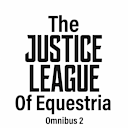
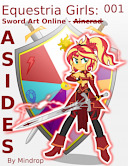
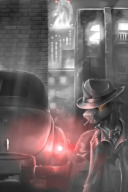
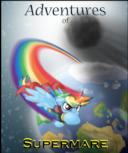
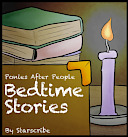
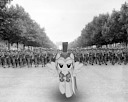


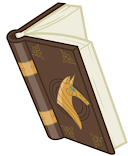


... it takes dedication to make this many parallels to reality, while still keeping it original. I approve.
media.tenor.com/images/94f78700b44ee59399f0e011a935f6e3/tenor.gif
10197896
Thanks! Glad to see I hit the mark.
And believe it or not, a version of the original also happened, but in the Second Age...
Also, thanks for the faves!